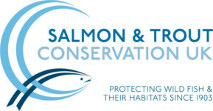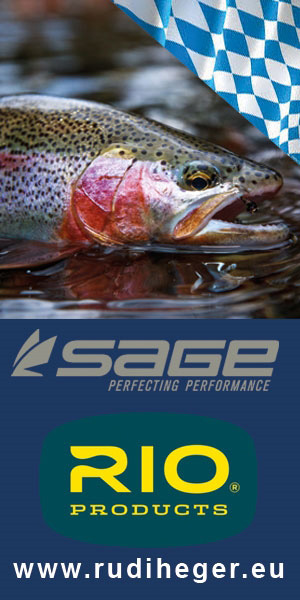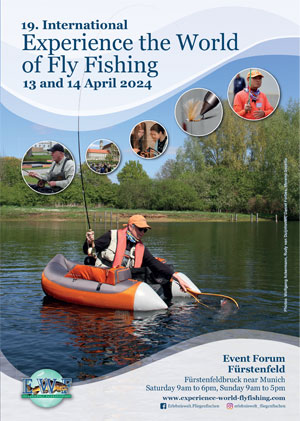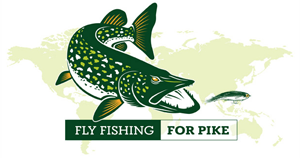The fundamental message from a seminar organised by fisheries charity Salmon & Trout Conservation Cymru in Builth Wells recently was that agricultural pollution of Welsh rivers and streams has reached endemic proportions and that time is running out to protect the wild fish and other aquatic wildlife that depend on clean fresh waters to survive.
Speaking to the mixed audience of more than 50 academics, anglers, fisheries scientists and conservation organisations, Richard Garner Williams, National Officer for S&TC Cymru said, “Threats to the very survival of the wild fish of Wales, including salmon, sea trout and brown trout, can no longer be ignored. The pollution of Welsh rivers by intensive agriculture has reached epidemic proportions and it is vital that the Welsh Government takes a more active stance to protect our precious waterways.”

Agricultural pollution affects some 180 individual waterbodies and the number of incidents caused by dairy and beef farms across Wales has fluctuated between 85 and 120 for each of the last six years. A significant downturn in the dairy market has added to the pressure on the environment, reducing farmers’ capacity to invest in adequate slurry and silage store management. Point source pollution incidents (such as those caused by overflowing slurry stores) have been more frequent in certain areas than others with Carmarthenshire and Pembrokeshire suffering over 60% of the incidents during the last three years.
Presentations at the seminar by Frank Jones, technical Adviser with Afonydd Cymru and Dr Stephen Marsh-Smith highlighted the challenges facing sustainable land management across the Welsh landscape. With belts being tightened and fluctuating milk prices, dairy farmers are struggling because of the ongoing price crisis. The scale of production required to generate a realistic return has to lead to the intensification of the sector to industrial levels, resulting in widespread and devastating impacts on the environment.
The two most alarming areas of concern in this respect and discussed at length at the seminar are the standards and practices employed in the storage and disposal of slurry. Losses from holding lagoons or the spraying of large quantities on fields in wet conditions is the ultimate pollution threat for our rivers, warns S&TC Cymru.
Delegates at the seminar also heard the early results of S&TC Cymru’s Riverfly Census on the Usk, Cleddau and Clwyd. The scientific data from this survey accurately measures water quality and the local stresses that may be impacting on life in our rivers. Richard Garner Williams explains the importance of the Census to Welsh waters, “This system for monitoring the health of our rivers by recording the invertebrate population down to species level is unique and is vital in helping us to accurately understand the current threats facing our fresh waters in order to identify workable solutions to clean up our rivers.”
But rivers in Wales are currently suffering from alarming levels of pollution from a range of sources. In the uplands, forestry plantations are causing the acidification of rivers to the point that they are incapable of sustaining spawning fish and their progeny while in the lowlands intensive agricultural practices are making the waters uninhabitable for fish and invertebrates alike. Richard Garner Williams says, “Fish stocks and other aquatic wildlife are being hit from source to sea. It is the ‘perfect storm’. Although we have moved away from the ravages of the industrial age, we are now seeing more subtle but equally devastating impacts from pollution.”
But there is light on the horizon. Some rivers, such as the Taff and Wye are showing an encouraging upturn of fish stocks and at the seminar Peter Gough, Principle Fisheries Adviser with Natural Resources Wales, explained that there are proposals in place to protect dwindling fish stocks on other rivers in the future.
Richard Garner Williams, concluded by saying, “We were delighted by the response to our seminar, but we need more collaboration and cooperation to trigger change and action. There appears to be insufficient appreciation across the board from Welsh Government and statutory agencies to the private sector and the general public of the value of freshwater fisheries to Wales. We need to increase this understanding, particularly within Welsh Government, of the environmental, social, recreational and economic benefits of flourishing fisheries.”
Richard continues, “Key to any reversal of the situation is improved funding for the monitoring and enforcement agencies and heavier fines for polluters. In addition we need to reconsider our current agricultural policy and how it provides advice and financial support to our important but ailing agricultural sector so that these regular and devastating pollution incidents become a thing of the past. In this day and age, it is totally unacceptable to carry out practices that are so damaging to our rivers and environment. We know what has to be done, we just need Government and all other interested parties to understand, value and act for the benefit of our wonderful rivers and streams and the wild fish of Wales.”

Website: www.salmon-trout.org.






